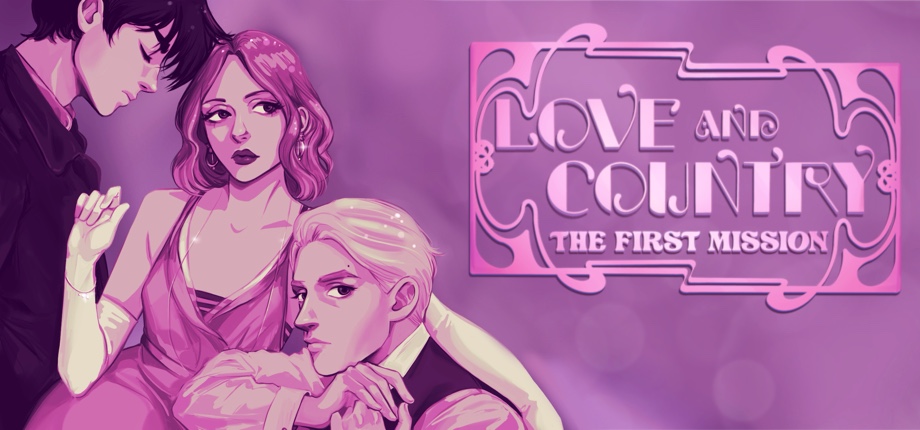Music: Making (and Breaking) Historical Rules
Hello again! We hope you’re all staying healthy amidst all this air quality nonsense, we down at Guhuhu HQ are staying inside to escape the air and work on finishing the game!
For something different today, let’s talk about the music of Love & Country!
As you’ve certainly noticed by now, we’re big history buffs at Guhuhu Games. Very careful attention has been paid to period accuracy in references, settings, costumes, and more. When we sat down to figure out the musical identity of the score, we kept that in mind with one small twist. Unlike other aspects of the game where our aim is accuracy, the music required more freedom to serve the story. It is still informed by the musical style of the era, but we are playing a little loose with it.
The game’s music takes heavy inspiration from classical music from the 1910’s (and some from the 1920’s), with a focus on chamber music. During WWI in Europe, orchestras performed far less due to musicians having to fight in the war and organizations being scant on funding. While many important orchestral works were written during this time, there was a boom of chamber music–that is, music for smaller ensembles or even just individuals. Pieces with unique instrumentations like Maurice Ravel’s “Introduction and Allegro” (harp, flute, clarinet and string quartet–this might sound familiar if you’ve heard the game’s music already!) were having their day, so it seemed only fitting that we use that as a model.
But historical precedent aside, there was something about using a small group of instruments that just felt right. Most espionage stories are scored with massive orchestras blaring at you. This makes sense given the weight of their actions, but it sometimes feels cognitively dissonant to hear a thunderous din while someone is trying to quietly sneak around a base. On top of that, Lillian’s mission is important, but the fate of the world isn’t hanging in the balance here. A smaller scale mission suggests a smaller scale sound.
We used the tried-and-true method of associating instruments with characters and settings. France is a wind quintet (flute, oboe, clarinet, french horn, and bassoon–with occasional doublings) with Emile being specifically represented by the clarinet. Germany is a string quintet (two violins, viola, cello, and double bass), Anton being associated with the cello. Both ensembles are prominent in both countries, but something about the inherently mischievous sound of winds fit Emile better, while the austere-by-default string quartet seemed to better suit Anton (note: there are a lot of percussive knocks and taps, those are actually the sound of people knocking on string instruments!). They don’t often play all at once, but when they do, the balance between the two is determined by the situation. Is Anton present at all? Then we need some strings. Are we in Germany, but we’re wandering around with Emile? Then winds take the forefront and strings stalk in the background, reminding us of where we are but not taking the focus.
There are a couple of other instruments that make appearances, mostly motivated by setting (like the guitar) or by situation (like the harp–play all the routes in the full game to find out why!), but there’s one other major element of the score we have not yet discussed: the prepared piano. Throughout the score, you may notice percussive sounds, clings and clacks that surround you, especially during anything particularly spy-oriented. That is a prepared piano, a piano with various objects like erasers and screws placed on the strings to create new sounds.
Remember how we said the music plays loose with historical accuracy? This is one of those times. Prepared piano has a history that dates back as far as the time of Mozart, and while American composer Henry Cowell may have been writing his early experiments with the prepared piano around this time (look up his piece “Aeolian Harp”), prepared piano didn’t really take this form until John Cage’s work in the late 1930’s. Still, we decided to use it for two reasons: First, there was something that felt appropriate about a spy—someone who has information the rest of the world doesn’t have yet—wielding an as of yet uninvented sound before anyone else. Two: I needed percussion, drums would have sounded weird. Not all the reasons are good.
We hope you enjoyed this little dive into the style of the music! Outside of our devlogs, you can follow us on Twitter and Instagram to keep tabs on the games progress. We’re still planning on an early fall release, we can’t wait to show you more!
Love,
Guhuhu Games
Get Love & Country: The First Mission
Love & Country: The First Mission
A WWI espionage romance visual novel
| Status | Released |
| Authors | Guhuhu Games, pr1nsass, Zachary Pinkham |
| Genre | Visual Novel |
| Tags | Female Protagonist, Indie, Multiple Endings, Narrative, Otome, Period Piece, Ren'Py, Romance, Story Rich |
More posts
- A Very 'Love & Country' Update (ft. It's On Sale Again!)34 days ago
- Bonus Content Update is now LIVE!Feb 14, 2025
- 📢A Guhuhu State of the Union📢Feb 01, 2025
- Nothing says "Spooky Season" like a Post-Mortem!Sep 26, 2024
- Fun bits and bobsAug 02, 2024
- Achievements: achieved!Jul 23, 2024
- Come hang with us!Jul 10, 2024
- Robot Talk Pretty One DayJul 01, 2024
- More Music: How it Works and the Biggest Mistake I MadeJun 17, 2024
- Start the countdown!May 20, 2024

Leave a comment
Log in with itch.io to leave a comment.